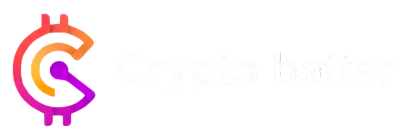Overview of Transparent Governance
Transparent governance is a vital aspect of modern societies, ensuring accountability, honesty, and trust between governments and their citizens. It involves the dissemination of information, decision-making processes, and allocation of resources in an open and accessible manner. Through transparent governance, citizens can actively participate in the governance of their countries, holding their leaders accountable and contributing to the overall development of their nations.
By promoting transparency, governments can enhance public trust, foster efficient decision-making, and reduce corruption within their institutions. Transparency allows for greater scrutiny of government actions, policies, and expenditures, leading to increased accountability and responsiveness to the needs of the public. Furthermore, transparent governance facilitates the dissemination of accurate information, empowering citizens to make well-informed decisions and actively engage in the democratic process.
Understanding Blockchain Technology
Blockchain technology is a decentralized digital ledger that securely records transactions across multiple computers. Each validated transaction is stored in a block, which is then linked to the previous block, forming a chain of data. This chain is visible to all participants, providing transparency and security through cryptographic techniques.
Blockchain's distributed nature eliminates the need for intermediaries, ensuring faster and more efficient transactions. Its immutability feature means that once a transaction is recorded, it cannot be altered or deleted, enhancing trust and reliability in the data stored on the blockchain.
Benefits of Using Blockchain for Governance
Blockchain technology offers numerous benefits for governance systems due to its inherent features of decentralization, transparency, and immutability. By utilizing blockchain, governments can enhance the trust and security of their systems, as every transaction recorded on the blockchain is tamper-proof and transparent to all participants. This can help in reducing fraud, corruption, and improving overall accountability within public institutions.
Moreover, the use of blockchain in governance can streamline processes, reduce administrative burden, and increase efficiency. Smart contracts, a key feature of blockchain technology, can automate tasks, enforce agreements, and reduce the need for intermediaries, thus cutting down on time and costs associated with traditional manual processes. This can lead to greater citizen satisfaction, increased public trust, and ultimately, more effective and reliable governance systems.
Examples of Transparent Governance Projects
Governments in Estonia have taken significant strides towards transparent governance through their e-residency program. This initiative allows individuals from any part of the world to establish and manage a business online, contributing to the country's digital governance model. With secure digital identities, e-residents can access various government services and conduct business operations efficiently, promoting a transparent and inclusive administrative environment.
In South Korea, the Seoul Metropolitan Government launched the "Sharing City" project to encourage the sharing economy and establish a sustainable urban living environment. Through the utilization of blockchain technology, the project enhances transparency in resource sharing, transportation, and waste management. By fostering collaboration among citizens and local businesses, the initiative promotes community growth and empowers residents to actively participate in shaping the city's governance landscape.
Implementing Blockchain for Voting Systems
Blockchain technology has gained significant attention for its potential applications in revolutionizing voting systems. By implementing blockchain for voting, the transparency and security of the voting process can be greatly enhanced. Each vote is securely recorded on a distributed ledger, making it virtually impossible for any unauthorized manipulation of the voting data. This provides a high level of trust and integrity in the electoral process.
Moreover, blockchain technology enables real-time tracking of votes, ensuring that the results are accurately and quickly tallied. The decentralized nature of blockchain reduces the risk of fraud and tampering, as every transaction is recorded and verified by a network of computers. This not only streamlines the voting process but also increases the overall efficiency and credibility of elections.



